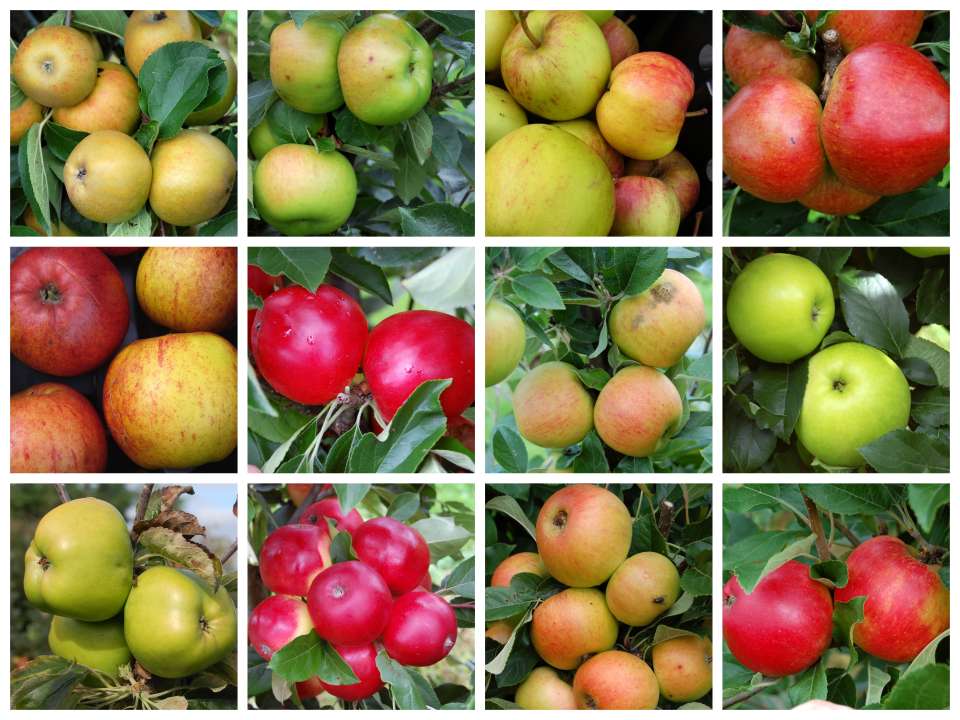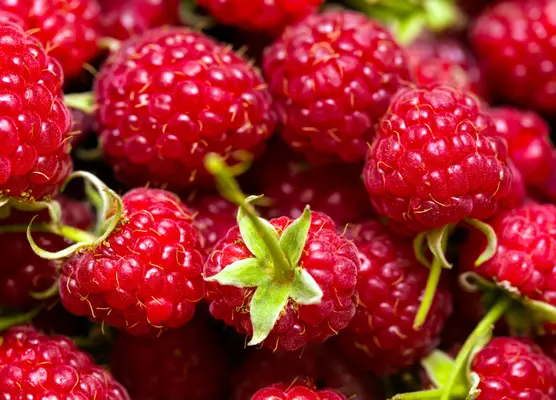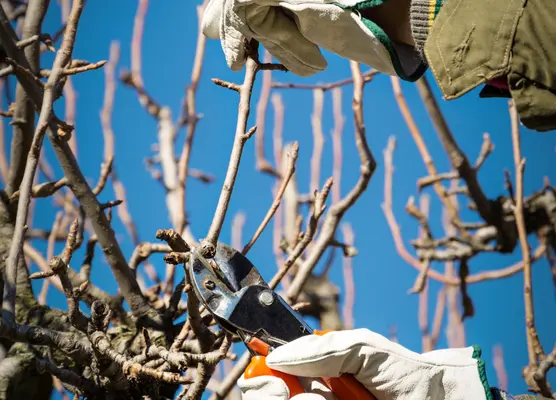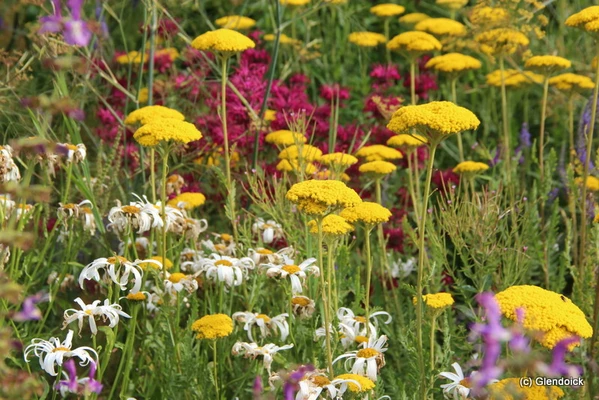Fruit Trees For Scotland, Autumn, Winter & Spring Planting
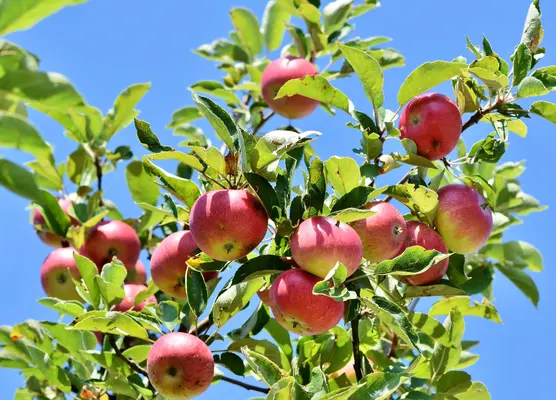
Fruit Trees for Scotland
From Kenneth Cox's books Garden Plants for Scotland and Fruit and Vegetables for Scotland.
Kenneth Cox on Fruit Trees for Scotland:
Glendoick deliveries of fruit trees arrive in Early September. Glendoick stock what is probably the best range of tress in Scotland.
When to plant trees
- September, October and November are the ideal months to plant trees while soil is still warm.
- February to May is also a great time to plant trees
- June to August: you can plant during these months but you will need to water constantly in dry periods and you may see some cosmetic damage to foliage while the trees establish. If you can plant in the period September to May, trees will establish better and quicker.
Apples
Glendick Apple trees are grafted on two different rootstocks which affect the vigour of the tree. The label on the trees will have the rootstock listed. e.g. Brambley M26
We recommend only two rootstocks.
MM 106 Medium-large tree, 3-5m in 10-20 years. Needs staking as a young plant but then self-supporting.
M26 Semi-dwarf, grows to 2-3m. Needs permanent staking, or to be grown against a wall.
M27 are rather weak and only fruit well in perfect sheltered conditions so they tend to languish, so we dont advise growing them and dont stock them.
Kenneth Cox's choice of the best apples for Scotland:
‘Bramley's Seeding’ (cooker) Large green-yellow apples, this is a great ‘tank’ of an apple, very vigorous, takes a while to produce its enormous heavy fruit and though pollinated by other apples, it does not work as a pollinator, so you would need to grow two other varieties alongside so that they all fruit.
‘Discovery’ & ‘Rosette’ (eater) Bright red, early, probably the number one apple for Scotland. ‘Rosette’ has pink flesh, but is otherwise identical to 'Discovery.'
‘Egremont Russet’ (eater) Early-flowering, cream, tinged yellow, good flavour, keeps well, scab-prone in the west.
‘Fiesta’ (Red Pippin) (eater) Sweet, reddish-orange, Cox-like flavour, good in Scotland and N. England, keeps well, subject to canker in some areas.
'James Grieve' (eater) famous old Scottish Apple. Red and green, crisp and juicy, a good pollinator, an old Scottish favourite, better in the east than the west, but perhaps superseded by less scab-susceptible varieties,
'Katy’ (eater) sweet red, early, from Sweden, skin rather thick, good in the west, ‘
‘Red Devil’ (eater) Scarlet, good flavour.
‘Red Falstaff’ (eater) Crisp and juicy, very heavy yield, frost resistant flowers, good storage.
‘Red Windsor’ very hardy, Cox-like flavour, early ripening.
‘Scrumptious’ (eater) very good taste, popular with children, frost hardy in flower, fruit stays ripe on tree for long time, one of Jim McColl’s picks, but John Butterworth reports that it is scab-prone in the west,
‘Spartan’ (eater) dark red sweet fruit, prone to scab, particularly in the west,
‘Sunset’ (eater) sweet-sharp flavour, stores well, fairly disease-resistant,
‘Winter Gem’ (eater) very good flavour, vigorous, needs good pollination, and not a heavy fruiter, so best on a dwarf rootstock in a sheltered site,
‘Worcester Permain’ (eater) # sweet, juicy orange red fruit, early ripening, best eaten straight off the tree.
Autumn is the ideal time to plant apple trees and the new season's stock arrives around September 1st.
Our trees are grown by the best fruit tree grower in England, Frank Matthews and the trees arrive in perfect condition each autumn.
The selection is chosen by Kenneth Cox as the best range of varieties for Scottish conditions: where possible with resistance to scab disease and should fruit heavily each year. Both eaters and cookers are grown.
Apple Pollination You need two different apples to set fruit as they need to be pollinated. An apple in a next door garden will do. Crab apples will also pollinate apples.
GLENDOICK FRUIT TREE STOCK September 2025
Apples
Apple (Malus) Ballerina Samba MM106
Apple (Malus) Discovery MM106
Apple (Malus) Bramley's Seedling M26
Apple (Malus) Discovery MM106
Apple (Malus) Discovery MM 106
Apple (Malus) Fiesta MM 106
Apple (Malus) Fiesta M26
Apple (Malus) Katy M26
Apple (Malus) Katy MM106
Apple (Malus) Katy M26 59
Apple (Malus) Kidd's Orange Red MM106
Apple (Malus) Laxton's Superb M26
Apple (Malus) Limelight M26
Apple (Malus) Red Devil MM106
Apple (Malus) Red Devil M26
Apple (Malus) Red Falstaff® M26
Apple (Malus) Red Falstaff® MM106
Apple (Malus) Red Windsor® MM106
Apple (Malus) Red Devil MM106
Apple (Malus) Red Windsor M26
Apple (Malus) Rosette M26
Apple (Malus) Rosette MM106
Apple (Malus) Scotch Bridget MM106
Apple (Malus) Scrumptious® M26
Apple (Malus) Scrumptious® MM106
Apple (Malus) Spartan MM106
Apple (Malus) Spartan M26
Apple (Malus) Spartan MM106
Apple (Malus) Worcester Pearmain M26
Apple (Malus) Worcester Pearmain MM106
Apple (Malus) Sunset M26
Apple (Malus) Sunset MM106
Apple (Malus) Winter Gem M26
Apple Starline Blue Moon columnar apple
Apple Starline Greenfinch columnar apple
Pears
Pears need shelter (plant on a wall for best results) as they flower early. You need two different pears for pollination to ensure good cropping. The self fertile ones give small stunted pears of not pollinated by another pear. It can be in a neighbouring garden if pollinators fly back and forth.
'Beth' August ripening Sweet fruit. Needs pollinator.
'Concorde' (partly self-fertile) good flavour, compact, heavy cropping.
‘Conference’ The most popular pear in the UK, and perhaps the best for Scotland as it sets fruit even if frosted, good flavour, fairly compact, heavy cropper. Though it is partly self fertile, the fruits are not good without a pollinator nearby. ‘Concorde’ is similar.
‘Doyenne du Comice’ The best flavour of all, but needs a warm, sheltered site and a pollinator, vigorous, scab-prone,
‘Williams Bon Chretien’ Yellow skin, juicy flesh, good for bottling, spreading habit, heavy cropper, A new sport of this, with red skin.
Pear Stocks September 2025
Pear (Pyrus) Beth Quince A
Pear (Pyrus) Conference Quince A
Pear (Pyrus) Doyenne du Comice Quince A
Pear Pyrus Conference
Pear Doyenne Du Comice
Pear Williams' Bon Chretien Quince A
Plums, Damsons and Gages
Plums generally fruit well in Scotland but can be short-lived due to canker and silver leaf. They are heavy-cropping from a young age, and all listed below are self-fertile, so you only need one. It is most practical to grow them against a wall, to avoid breakage from heavy fruiting and for ease of netting from birds and wasps. It may be necessary to thin fruit, to avoid exhausting the tree and starting a bumper/barren biennial cropping cycle. Prune in summer if required after fruit set, but not in winter, due to disease. The commonest rootstocks are ‘St Julien A’ for a full sized plum (3-4m) and ‘Pixy’ for a semi-dwarf tree (to around 2.5-3m).
Plum varieties
‘Czar’ sharp flavour, usually used for cooking, early fruiting, tough, spring-frost and shade-resistant, susceptible to silver leaf.
‘Marjorie’s Seedling’ sweet but not the best taste, good for cooking, late ripening, long-lasting fruit, vigorous and upright, heavy cropping,
‘Opal’ reddish-purple fruit, tastes like ‘Victoria’, but less susceptible to bacterial canker, so we would recommend this instead.
‘Victoria’ (Victoria plum) the most popular plum, heavy cropping, but very susceptible to canker, so often short-lived. in stock Sept 2025
Damsons have smaller fruit but are tougher and more disease resistant, and can be used as a windbreak or hedge. They need to be cooked and made into jam, wine or gin.
‘Farleigh Damson’ (self-fertile) the most reliable fruiter for Scotland.
Gages are not as successful as plums in Scotland as they need more shelter and warmth, and they may take years to start fruiting and then may not fruit every year. Apart from perhaps the Moray Firth coast (and other localised suntraps), we would not recommend them for the Northern half of Scotland. ‘Cambridge’ (self-fertile) is probably the best.
Cherries in Scotland
These are usually fan-trained against a wall, so they can be easily netted against birds.
Cherry Rootstocks For smaller gardens, we would recommend buying cherries on ‘Gisela 5’ rootstocks as they fruit younger and more heavily on a less vigorous tree/bush. For a larger tree, buy trees on the ‘colt’ rootstock. Whatever the size, cherries need a rich, fertile soil, and regular feeding.
All the cherries below are self-fertile. and are in stock September 2025
They don’t require pruning unless you need to restrict growth, just tie in the young branches.
‘Morello’ dark red cooker, very hardy,
‘Stella‘ dark red sweet, eating cherry, fruit inclined to split,
‘Sunburst’ sweet black fruit,
Apricots, peaches, figs, and other tree fruit
Scotland’s summers are too short and too cool for most other tree fruit to crop reliably outdoors, and are best indoors.
That said, recent hot summers have meant that we have seen figs ripening in Aberdeenshire and grapes at House of Pitmuies, Angus, so never say never.
But in our experience the taste of outdoor Scottish apricots, peaches, and figs do not match those from hotter climates.
If you want to try them, find a suntrap on a South-facing wall, and use fan-trained trees.
How to Plant a Fruit Tree
- You’ll need a spade, a tree and normally a stake and tree tie and if there are rabbits or deer, a tree guard.
- Dig a hole 2-3x as wide as the pot and a little deeper than the pot. Loosen the soil at the bottom of the hole with a fork. If the soil is poor, then add some new compost to the planting mix.
- Thoroughly soak the root ball in water before planting - standing it in a bucket is good for this and tease out the roots so they can grow into the soil.
- Place the root ball in the hole the top of the rootball is level with the soil surface.
- Refill the hole and firm the soil around the tree, with a boot, ensuring trunk remains vertical.
- Use a tree guard (metal or plastic protection to prevent deer, rabbits or hares (or strimmers) damaging the bark.
- Most trees will need staking. Either use a short stake at a 45 degree angle or for a top grafted or delicate tree, use a taller stake sited parallel to the trunk. Put the stake on the windiest (south westerly) side of the tree. Attach a ‘figure of 8’ tie from the tree to the tree stake. (see photo for how to do this)

